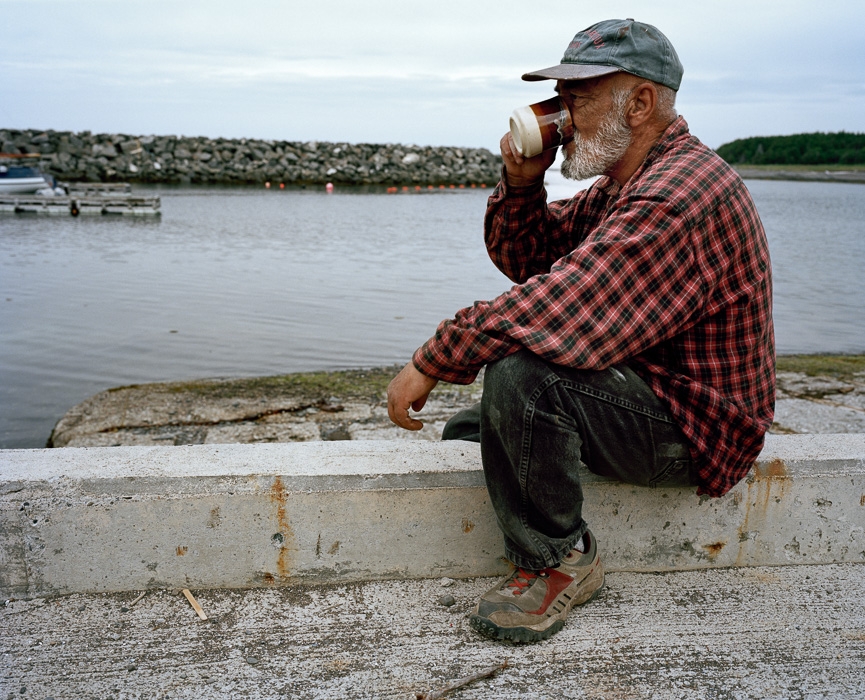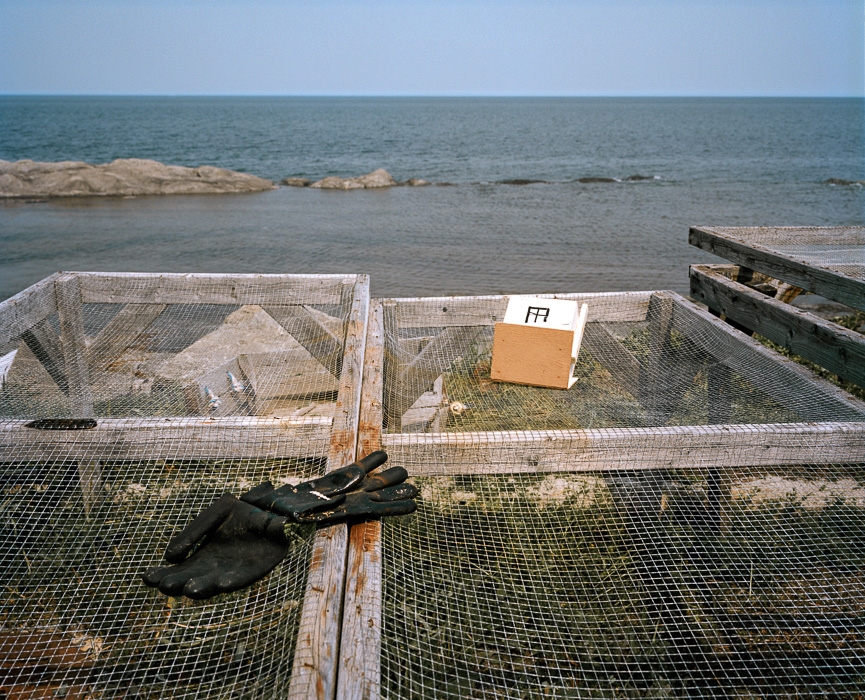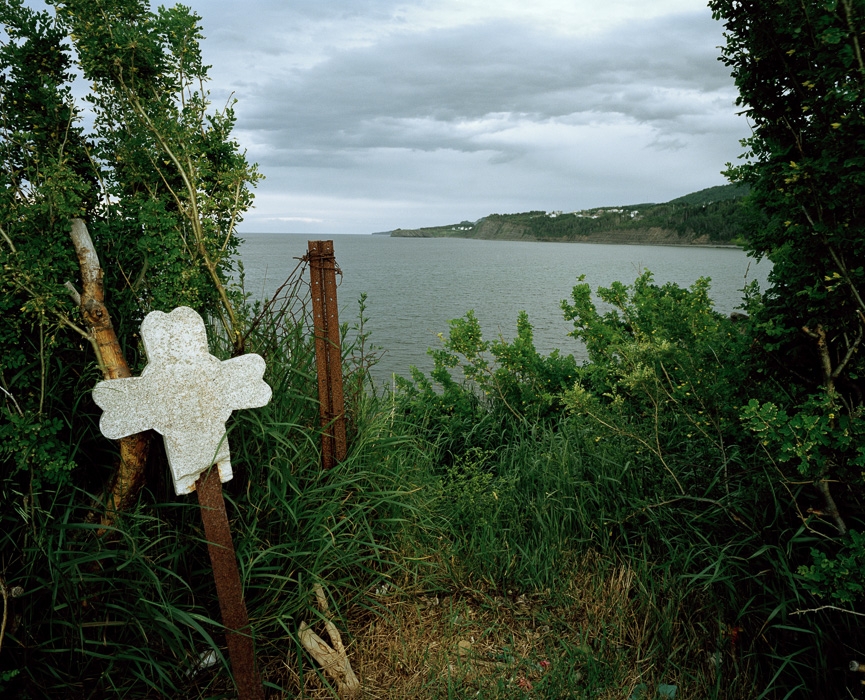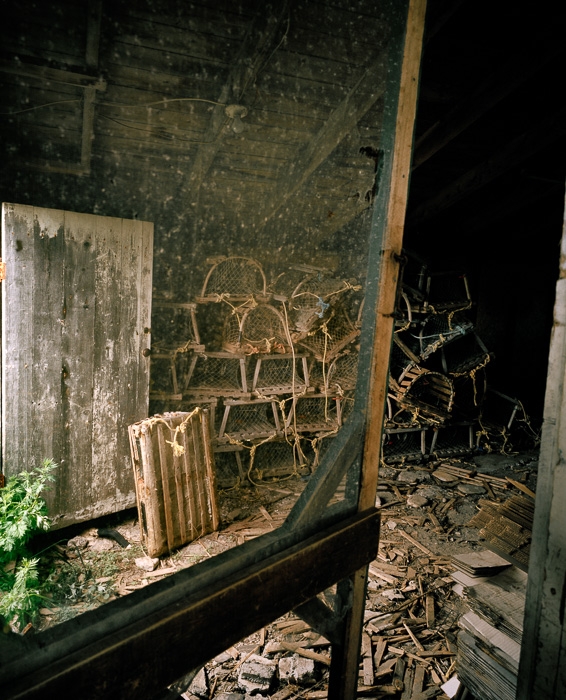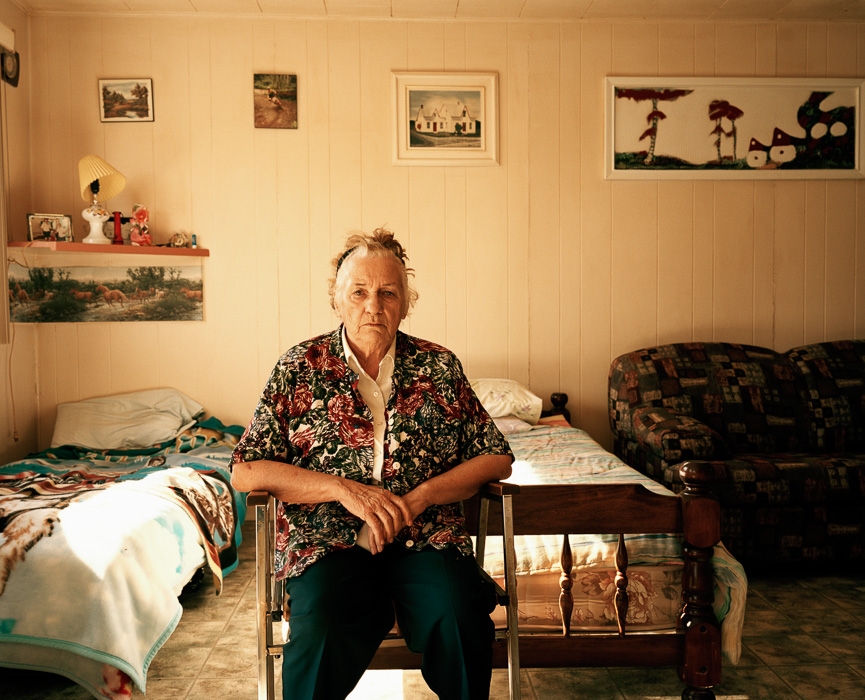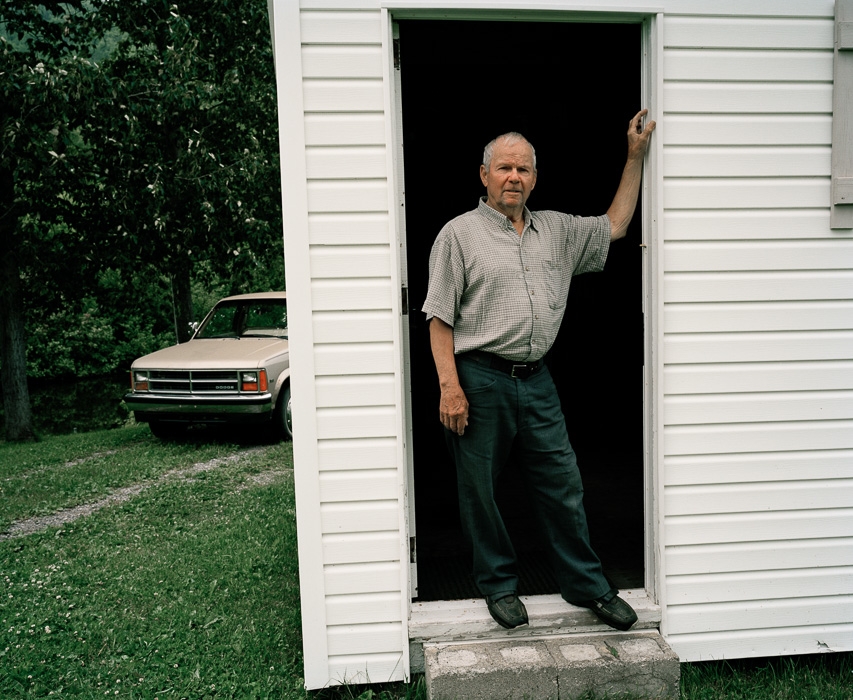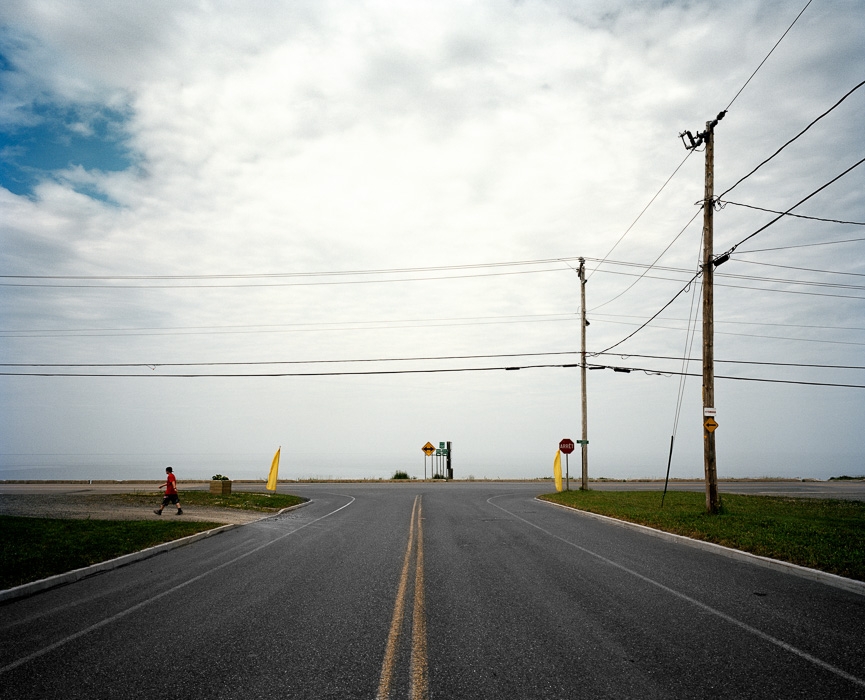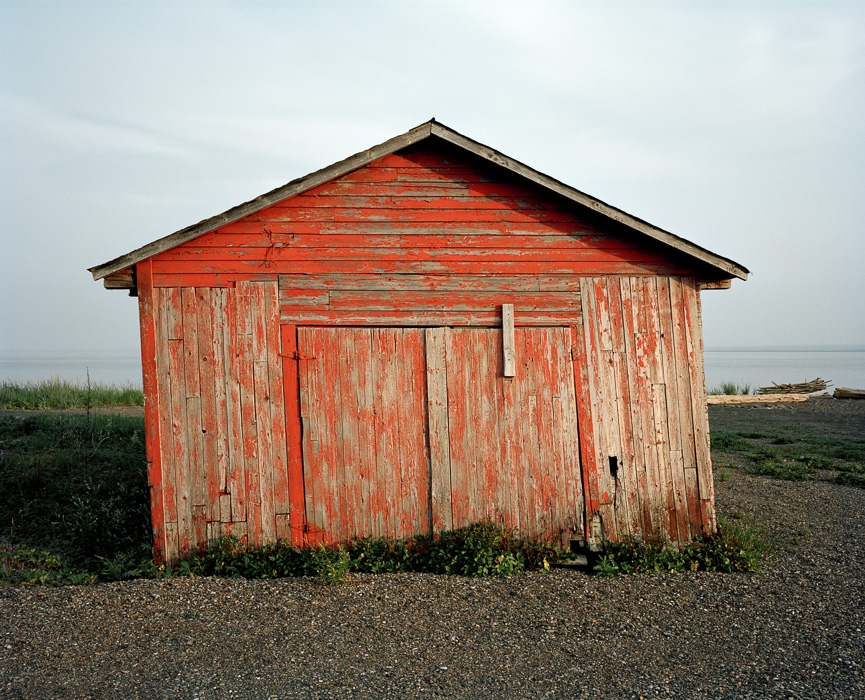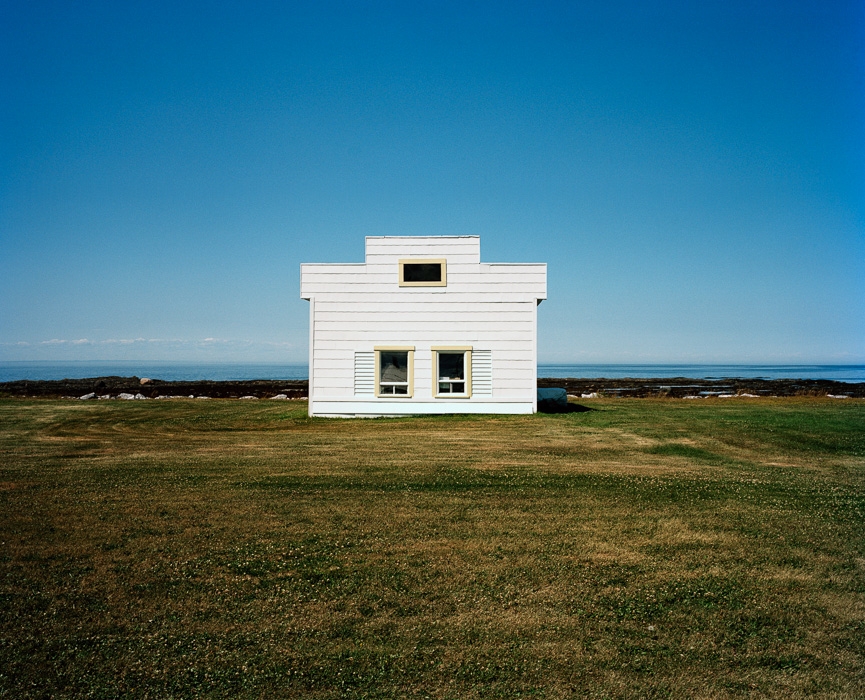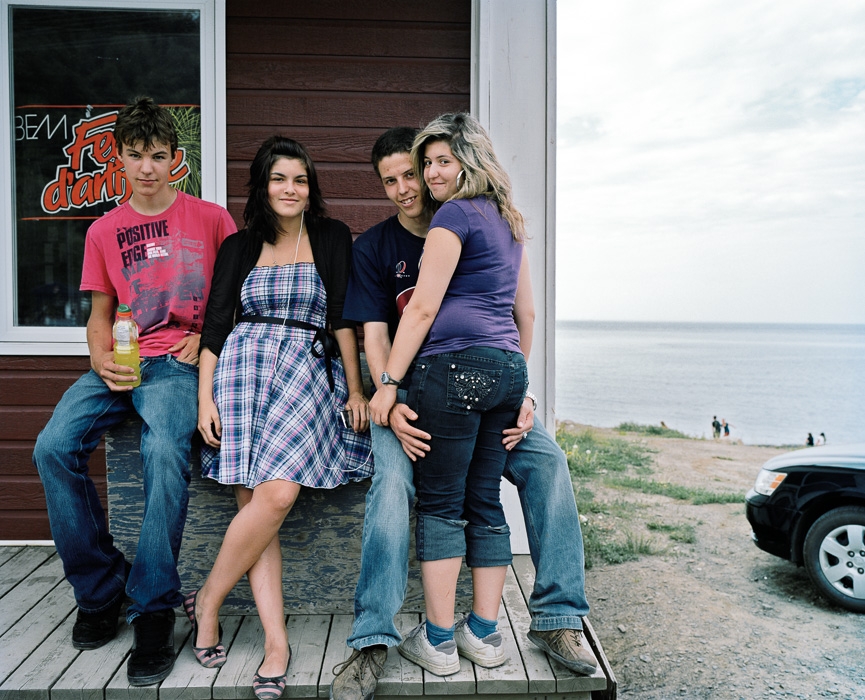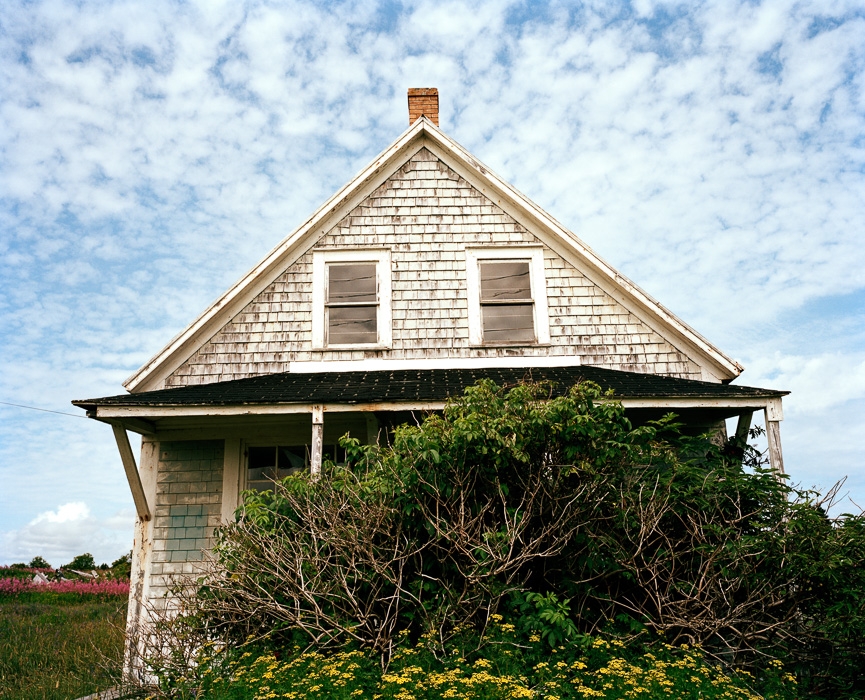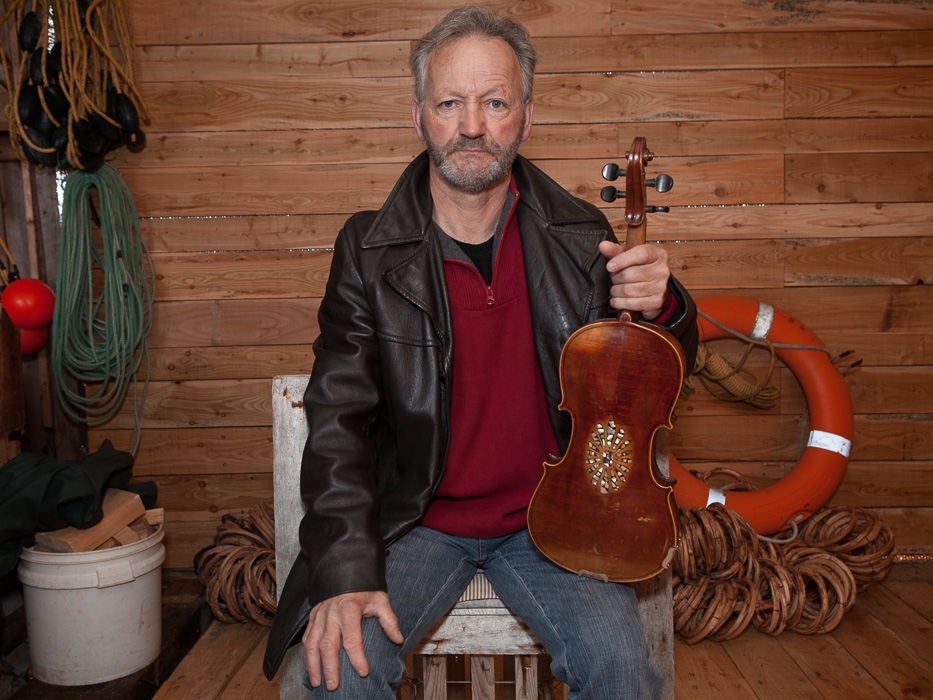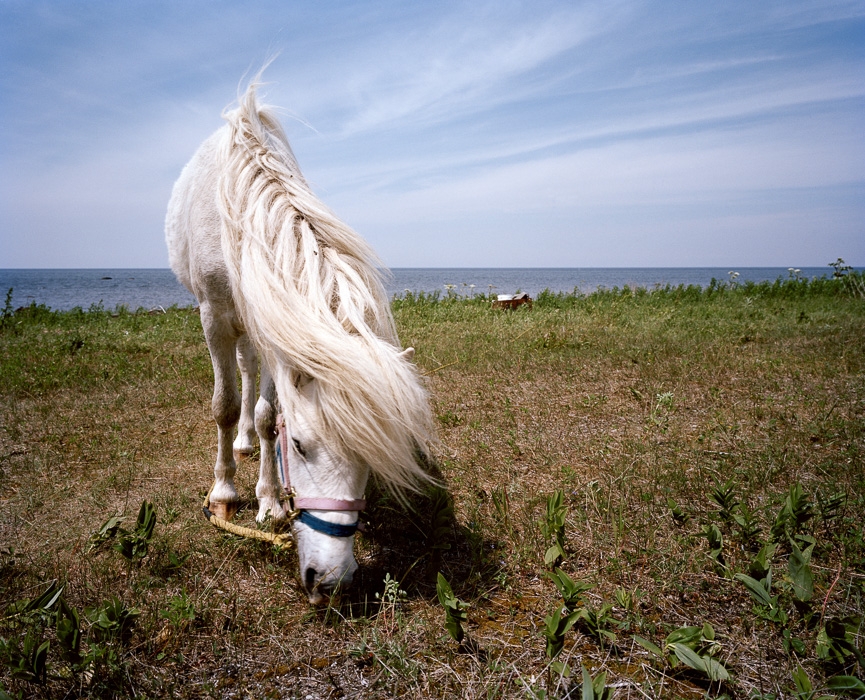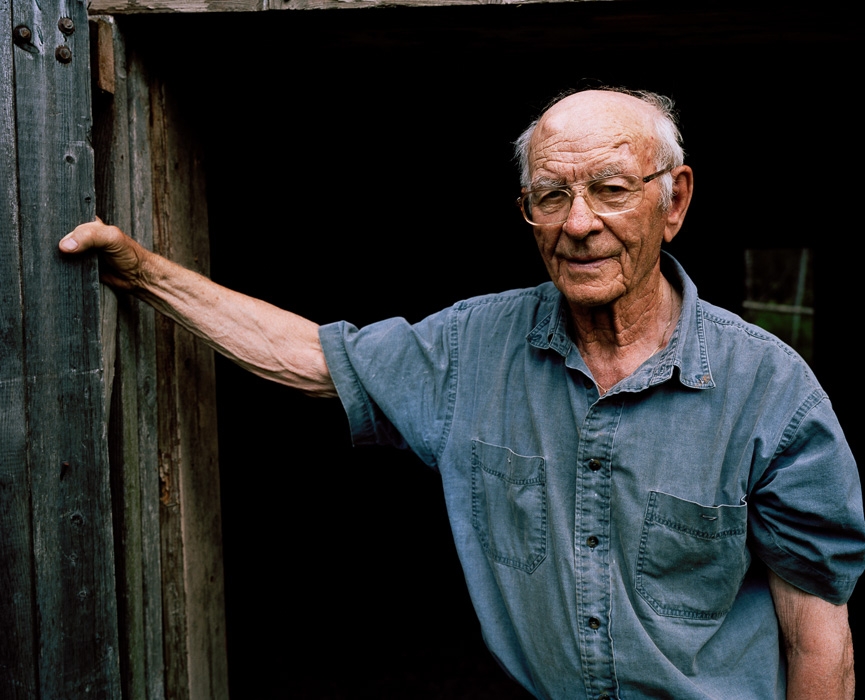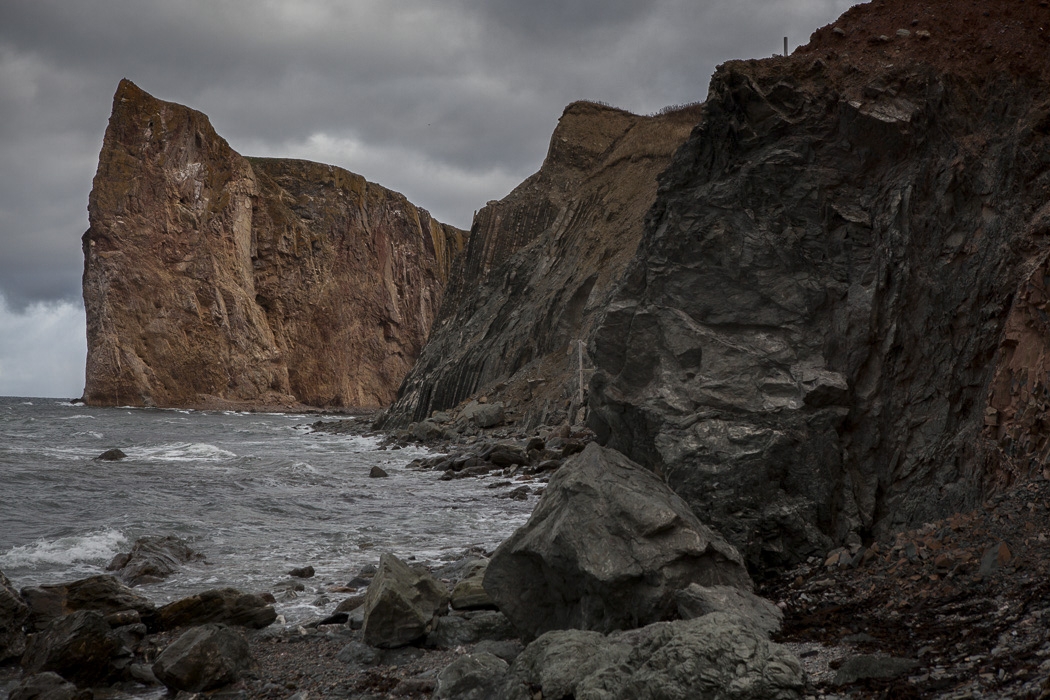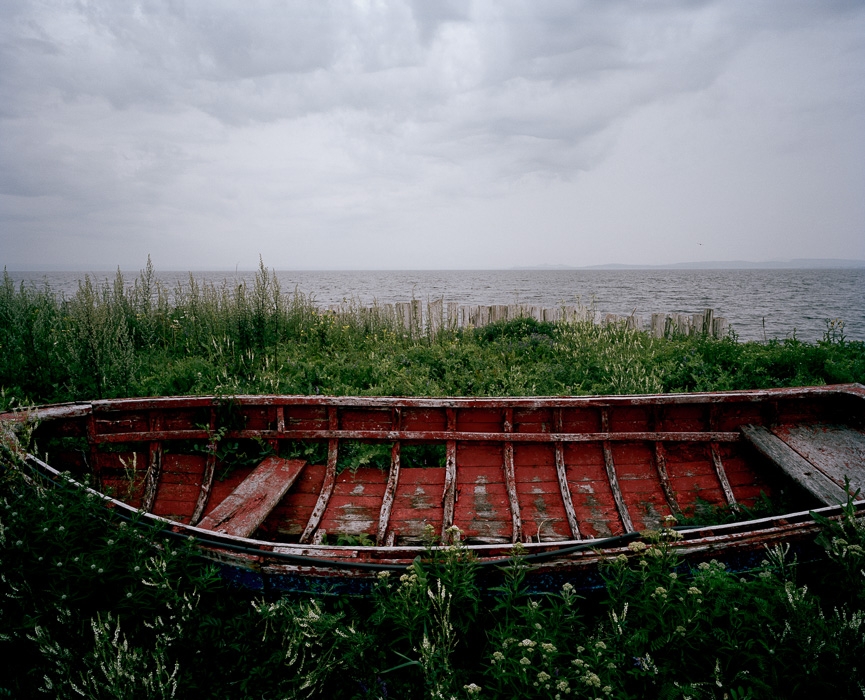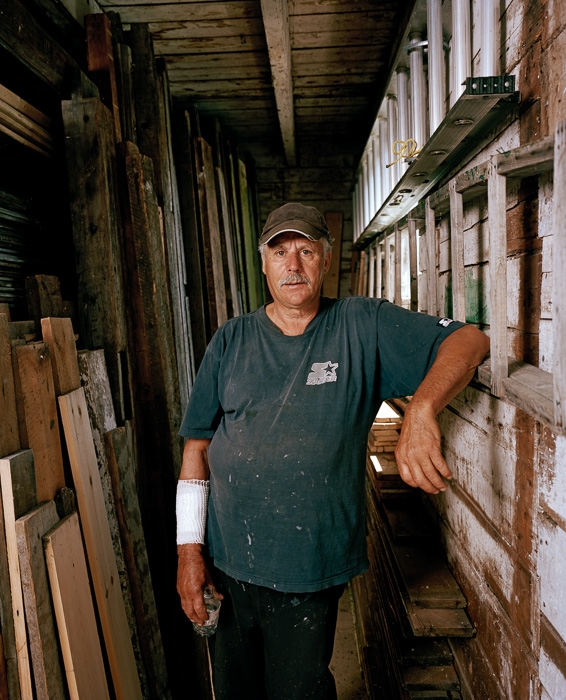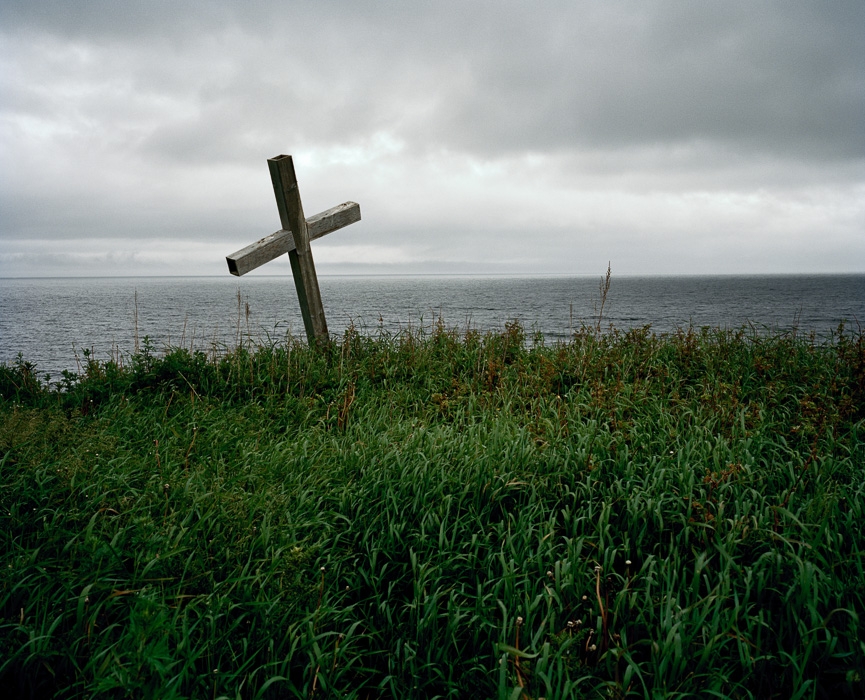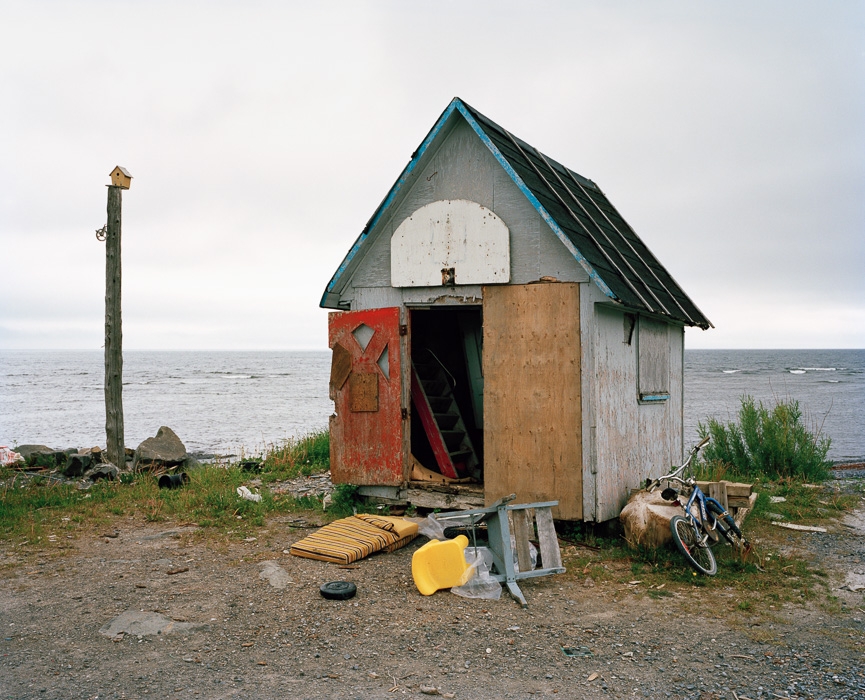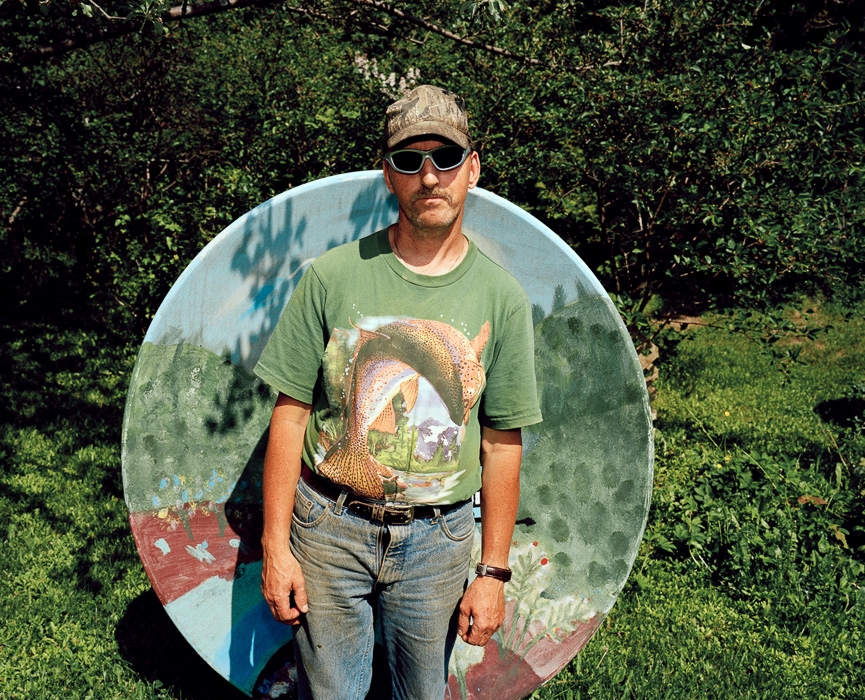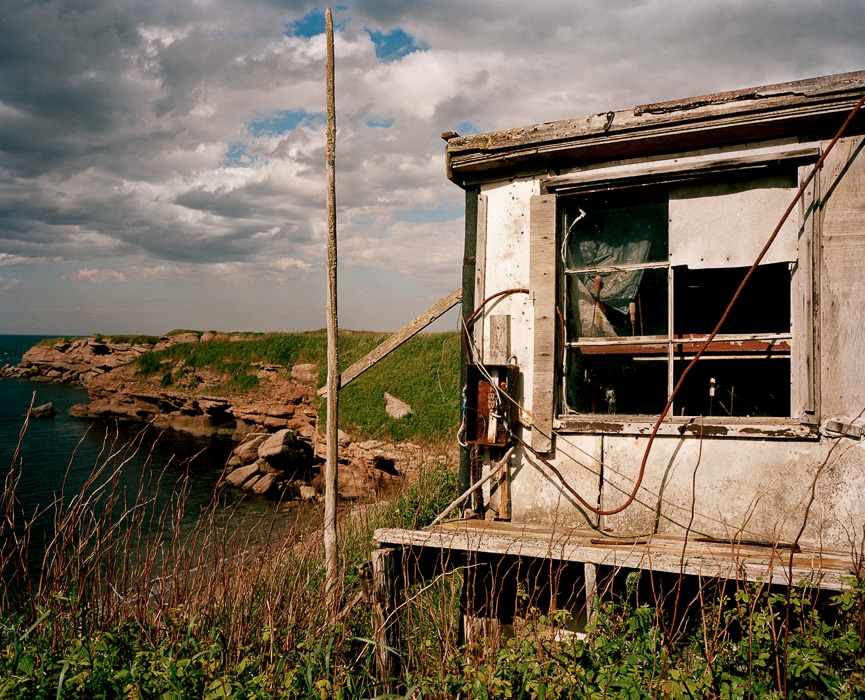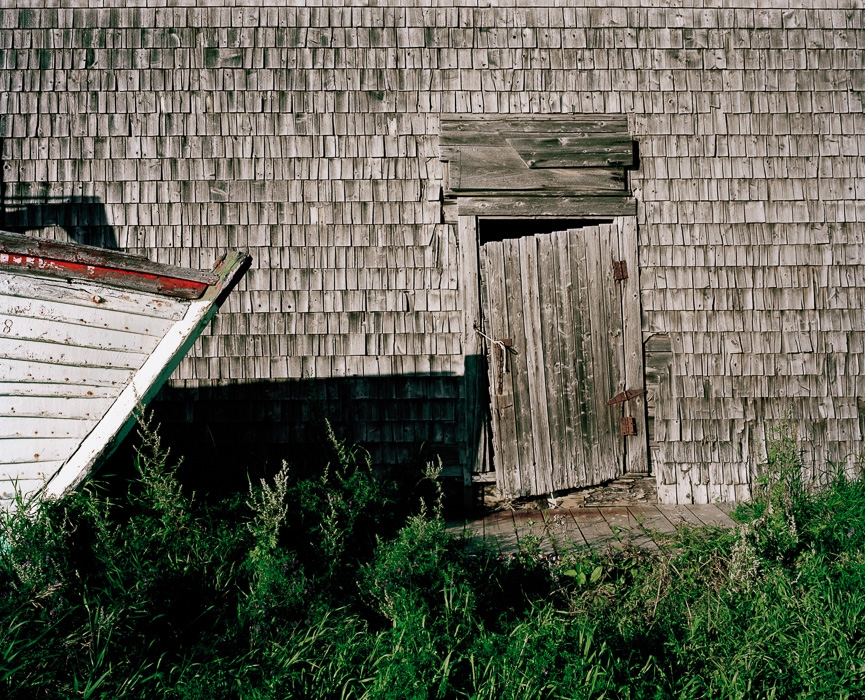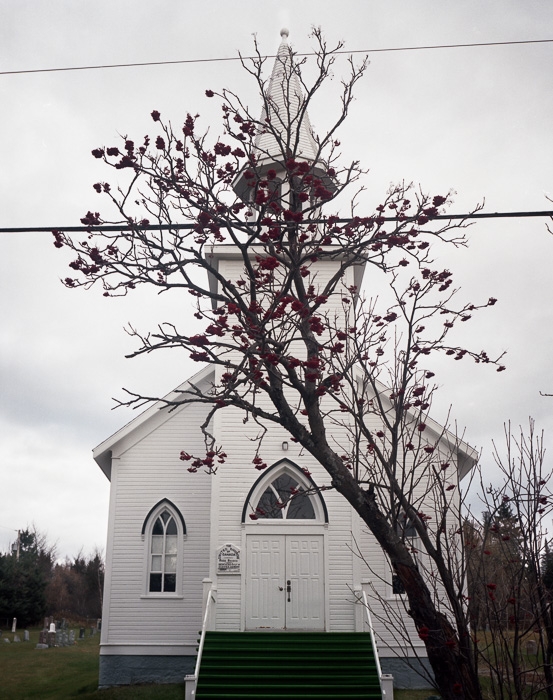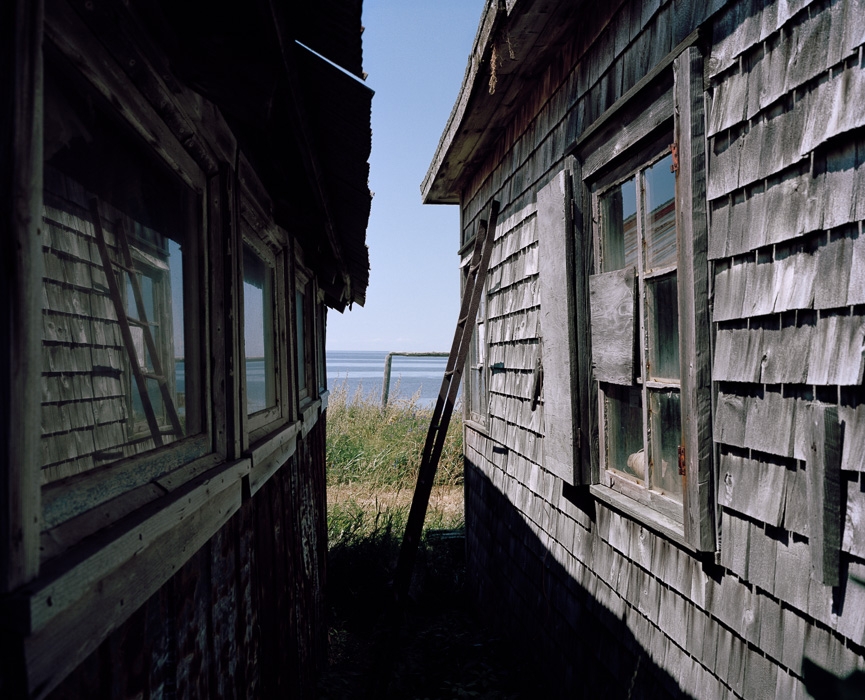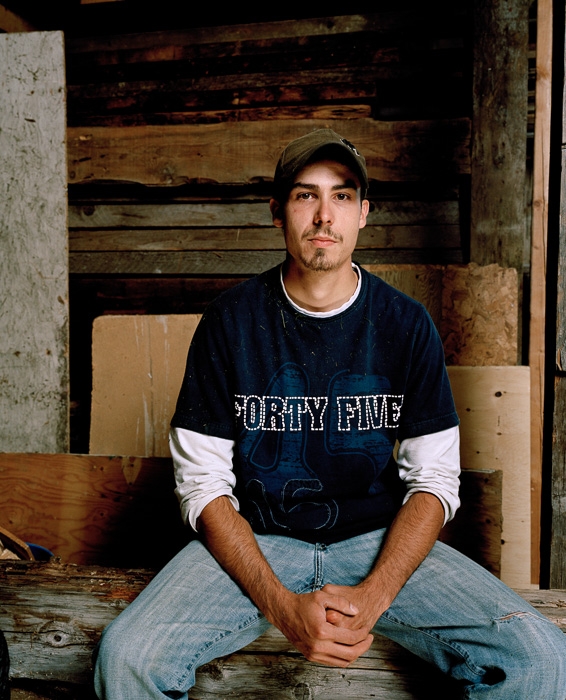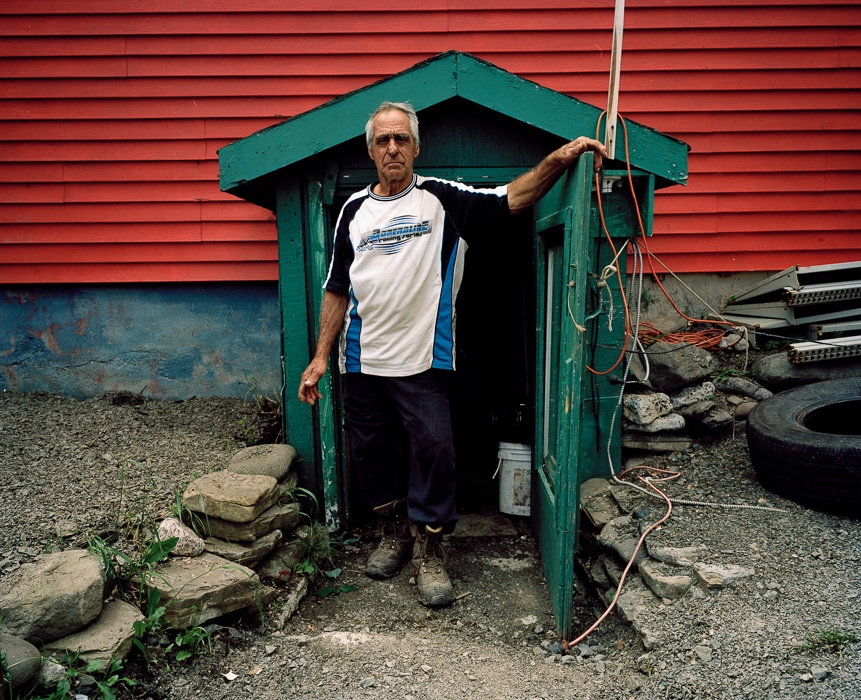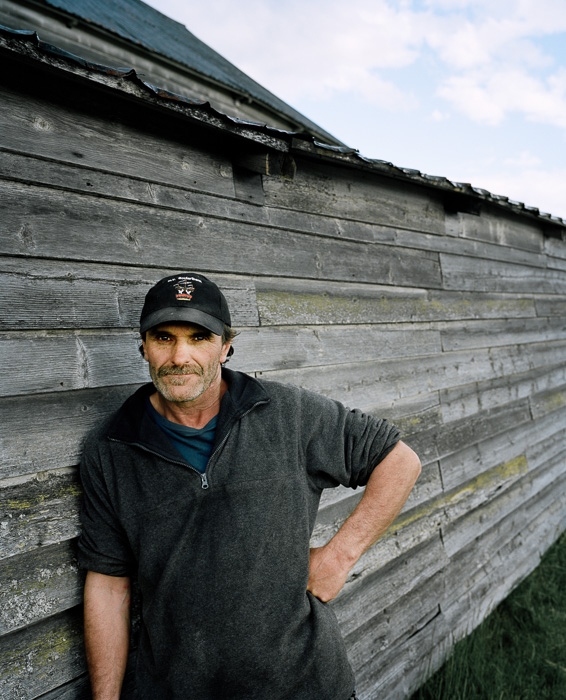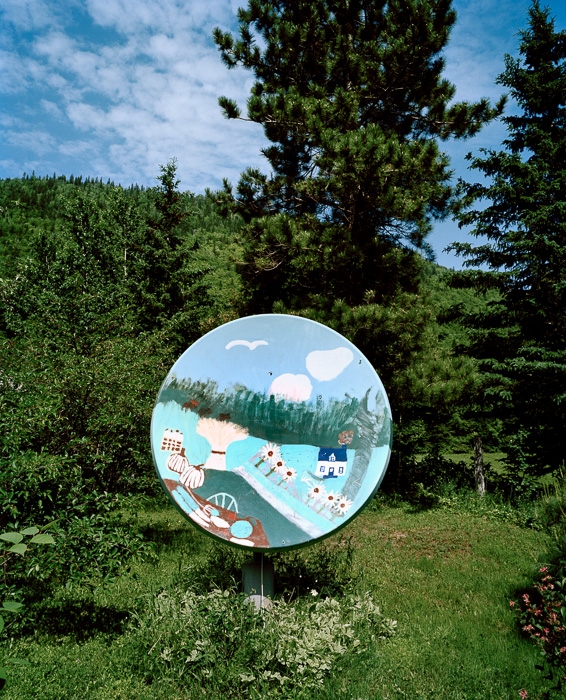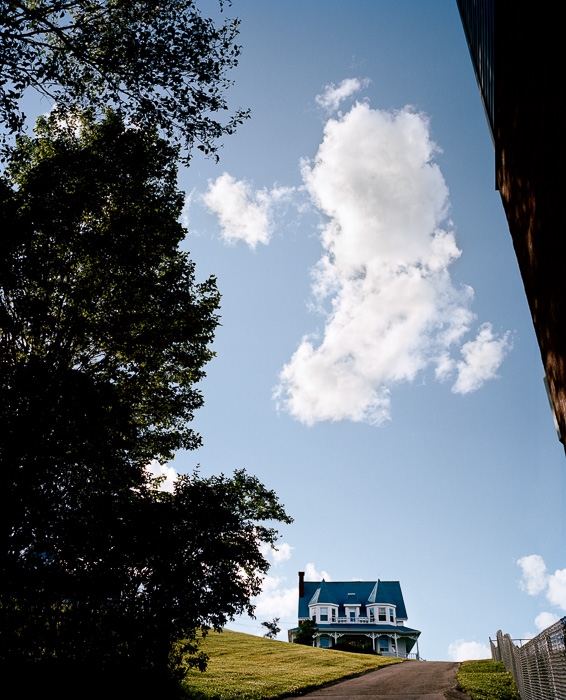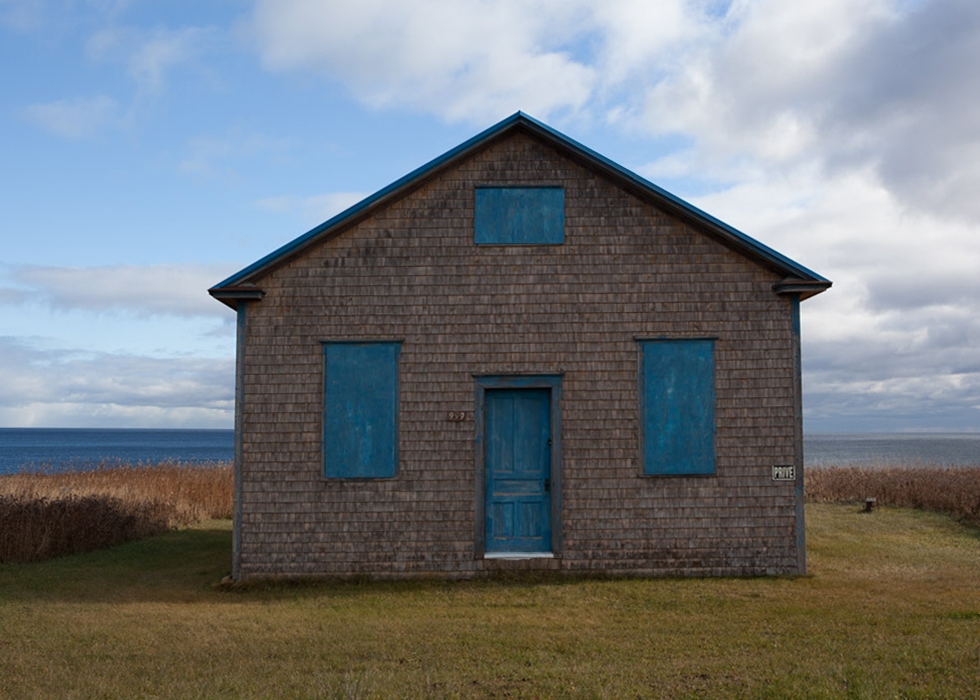Après Strand
2010-2011
Le projet Après Strand prend comme point de départ les œuvres que le photographe américain Paul Strand réalisa en Gaspésie en 1929 et en 1936. Au cours de ces deux voyages, Strand passa l’été en Gaspésie faisant le tour de la péninsule avec sa femme. Son travail est alors motivé par le désir de travailler sur des espaces plus vastes qu’il n’est habitué de traiter. Il cherche dans ces grands espaces une forme d’unité entre chaque élément qui les composent, dans l’avant plan jusque dans l’arrière plan et même dans la qualité des nuages des ciels qu’il photographie.
J'ai séjourné durant plusieurs semaines en Gaspésie et voyager tout autour de la péninsule, à la recherche des lieux où Paul Strand avait photographié. Et bien que j'ai retrouvé certains de ces endroits, je me suis plutôt librement inspiré de l'esprit des images de Strand.
Le voyage en Gaspésie de 1929 représente la première tentative de Strand pour interpréter "le caractère essentiel" d’un endroit et de ses habitants. C’est aussi sa première tentative à réaliser des paysages et d'établir des relations visuelles capables d’unir le ciel et la terre dans ses images. Il retournera en Gaspésie produire une seconde série d’images en 1936 où il réalisera des portraits.
Principalement des paysages et des vues architecturales, mes images incluent aussi des portraits. Mes prises de vues ont été réalisées en couleur afin de bien marquer une distance entre les deux corpus et demeurer fidèle à ma propre démarche. En continuité avec la pensée de Strand, j'ai voulu proposer ma vision du caractère essentiel de ce qu’est la Gaspésie aujourd’hui.
_______________
Territory and landscape share a long history with photography. In this project I decided to revisit that part of photography's history through the work of Paul Strand and his connection to my own territory, Québec. During the summer of 2010, I traveled to the Gaspé peninsula, following the route that American photographer Paul Strand took in 1929 and 1936. Although these two expeditions Strand made where brief, they nonetheless marked a turning point in his career. Indeed, it was during his first stay he began to take real interest in the problems raised by the photographic depiction of landscape. "Their importance", he said, referring to his Gaspé photographs, "is that they were the first more systematic, conscious efforts to organize a landscape and its elements, all its elements." If in his first trip he was dedicated to the landscapes, his second was also about making portraits.
Looking for a that essential character of a place Strand talked about, I travelled 8000 kilometers that summer, along route 132, the only road that goes all aroud the peninsula and even had the chance to meet with the grandson of one of Strand's subjects. But, obviously, the Gaspé that Strand saw is no more.






